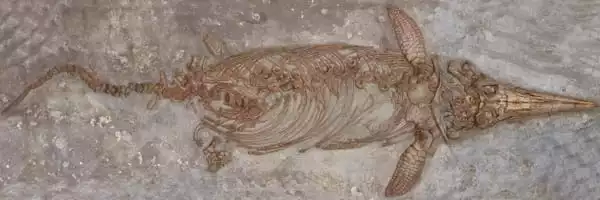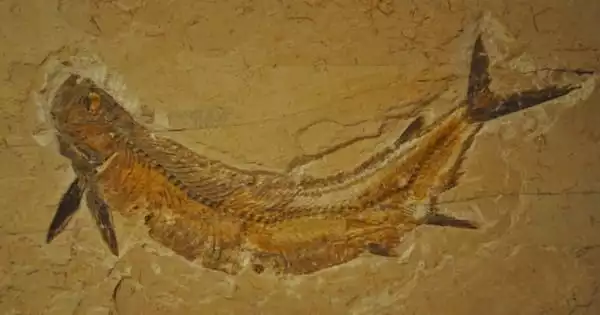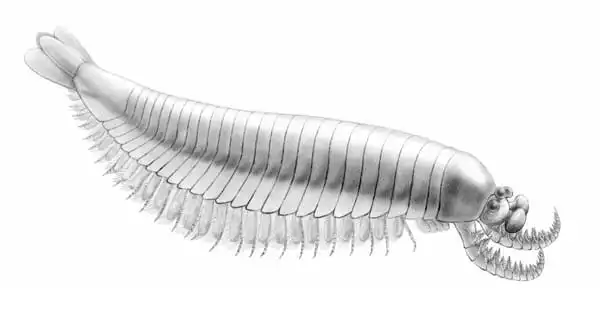A new study found that colonial history and socioeconomic factors influence how researchers study and interpret palaeontological samples. Its findings shed light on how ‘non-scientific’ forces can shape scientific knowledge, despite the latter’s frequent claims of objectivity. The study focuses on more privileged researchers who ‘parachut’ into poorer countries to study their fossil wealth and then leave without engaging local researchers.
According to a new study led by palaeontologists from the University of Birmingham and the University of Erlangen-Nürnberg, the fossil record, which documents the history of life on Earth, is heavily influenced by factors such as colonialism, history, and global economics.
The findings have implications not only for the field of palaeontology, but also for how researchers can use our understanding of ancient fossil records to gain clearer, long-term perspectives on Earth’s biodiversity. The researchers investigated the influence and extent of these biases within the Paleobiology Database, a vast, widely used, and publicly accessible resource that serves as the foundation of analytical studies in the field, in their study, published in Nature Ecology & Evolution.
They discovered significant bias in areas such as knowledge production, with researchers in high or upper-middle-income countries accounting for 97% of fossil data. This means that the majority of palaeontological research power is held by wealthy countries, primarily in the Global North.
We know that we cannot simply eliminate bias, but by understanding it, we open up entirely new avenues for understanding our past that cross boundary and span science and arts subjects. When we embrace this kind of diversity, palaeontology thrives.
Dr. Emma Dunne
Furthermore, the team discovered that the top countries contributing to palaeontological research performed a disproportionate amount of work abroad, with more than half of the work involving no local researchers (researchers based in the country where the fossils are being collected).
There are numerous well-known examples of colonial, political, and economic bias in the natural sciences and humanities. Specimens discovered during exploratory expeditions were shipped back to respective imperial capitals to be housed in museums, where many are still used for scientific research today. The Parthenon sculptures, also known as the Elgin Marbles, are perhaps the most famous of these, and the Greek government has repeatedly requested their return since they were stolen from Athens in the early nineteenth century.
These biases influence how palaeontologists conduct their research and, in extreme cases, can lead to unethical practices. Dr. Emma Dunne, one of the study’s co-authors, stated: “Although we are aware of these irregularities and gaps in our understanding of the fossil record, the historical, social, and economic factors that influence these gaps are poorly understood. Many of the research practices that are influenced by these biases continue to exist today, and we should be taking steps to address them.”

“We’ve all heard of scientific colonialism,’ or ‘parachute science,’ in which researchers from higher-income countries drop into other countries to conduct research and then leave without engaging with local communities or acquiring local expertise. But the problem goes deeper than that: local researchers’ expertise is undervalued, and laws are frequently broken, impeding domestic scientific development and leading to researcher mistrust.”
The researchers contend that the first step toward conducting more equitable and ethical research is to address the power dynamics that drive scientific research production. This entails involving and recognizing local expertise.
One such project is a research project based in a remote area of South Africa’s Western Cape that involves researchers from both European and African universities. Paleontologists from Witz University and the University of Johannesburg are at the forefront of this research, collaborating with local education specialists Play Africa to develop interactive materials that can be toured around schools in the region.
Dr. Dunne continued, saying: “We know that we cannot simply eliminate bias, but by understanding it, we open up entirely new avenues for understanding our past that cross boundary and span science and arts subjects. When we embrace this kind of diversity, palaeontology thrives.”
Many specimens obtained through colonial networks are still being studied by researchers. For example, plankton samples collected on the HMS Challenger expedition in the nineteenth century resulted in a paper published in 2020 by British authors.
The current study’s hook into such practices is what it calls “parachute science,” which occurs when more privileged researchers, typically from more “powerful” countries, “parachute” into less-fortunate countries to study the latter’s fossil wealth and then leave without engaging local researchers in their own studies on the same topics.
















